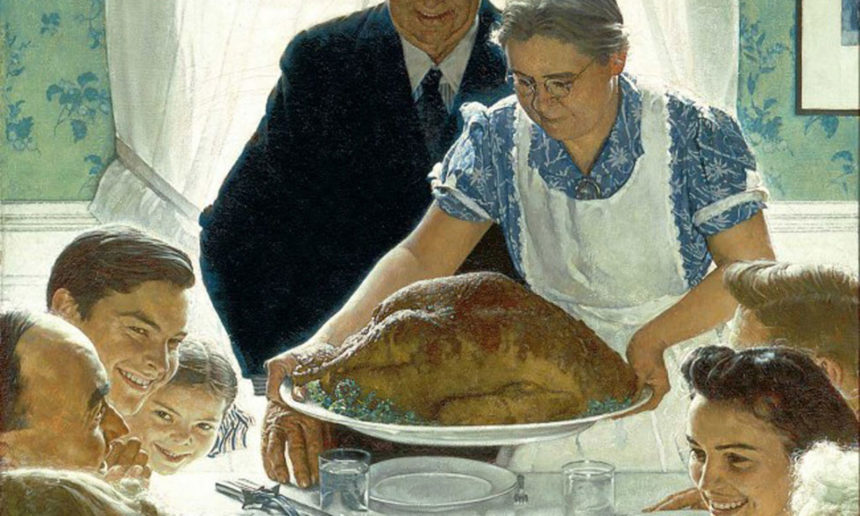Being enriched in every thing to all bountifulness, which causeth through us thanksgiving to God.” – II Corinthians 9:11
We celebrate Thanksgiving Day as a festive national holiday, feasting with family and friends and being thankful for the blessings God has given us. We usually associate Thanksgiving with the feast shared by the pilgrims and Indians. But Thanksgiving has a much longer history.
In 1863, while the Civil War raged, President Abraham Lincoln started the modern practice of celebrating Thanksgiving Day. He officially proclaimed Thanksgiving as “a day of Thanksgiving and Praise to our beneficent Father who dwelleth in the Heavens. And I recommend to them that while offering up the ascriptions justly due to Him for such singular deliverances and blessings, they do also, with humble penitence for our national perverseness and disobedience, commend to His tender care all those who have become widows, orphans, mourners or sufferers in the lamentable civil strife in which we are unavoidably engaged, and fervently implore the interposition of the Almighty Hand to heal the wounds of the nation and to restore it as soon as may be consistent with the Divine purposes to the full enjoyment of peace, harmony, tranquility and Union.”
George Washington had also issued his Thanksgiving proclamation in 1789, declaring “a day of public thanksgiving and thanks” to thank God for his providence and protection. Washington wrote, “Now therefore I do recommend and assign Thursday the 26th day of November next to be devoted by the People of these States to the service of that great and glorious Being, who is the beneficent Author of all the good that was, that is, or that will be —That we may then all unite in rendering unto him our sincere and humble thanks — for his kind care and protection of the People of this Country previous to their becoming a Nation…”
In 1623, two years after arriving on the Mayflower and enduring great hardships, the Pilgrims, gave thanks to the Lord for a bountiful harvest with a three-day celebration. Edward Winslow, a settler wrote, “And although it is not always so plentiful, as it was at this time with us, yet by the goodness of God, we are so far from want, that we often wish you partakers of our plenty.”
But the history of Thanksgiving goes much further back in time. The Israelites celebrate Sukkot, the Feast of the Tabernacles described in Leviticus 23:33. A special sacrificial peace offering was established for the Israelites to show their gratitude to God. In Leviticus 7:11-18, thanksgiving is described as, “And this is the law of the sacrifice of peace offerings, which he shall offer unto the LORD. If he offer it for a thanksgiving, then he shall offer with the sacrifice of thanksgiving unleavened cakes mingled with oil, and unleavened wafers anointed with oil, and cakes mingled with oil, of fine flour, fried. Besides the cakes, he shall offer for his offering leavened bread with the sacrifice of thanksgiving of his peace offerings.” There are many references and reasons in the bible for giving thanks to God. Above all, thank God for His love toward us.
O give thanks to the Lord of lords: for his mercy endureth for ever.” For I will restore the fortunes of the land as at first, says the Lord.” – Psalms 136:3
==> And read Museum of the Bible.
==> Also read Discover Bible Facts.


